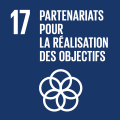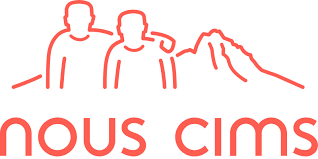Artificial Intelligence for Social Innovation? (AI4SI)
Beyond the Noise of Algorithms and Datafication
Description
Decisions societies make today about the ownership and governance of emerging technologies, like AI and blockchain, may set the course of the next century. In the era of accelerated algorithmic advancement, Artificial Intelligence (AI) stands as a transformative reality (a). We face a crucial challenge: to integrate social innovation with technology to catalyze significant and ethical social changes, known as technological humanism. In this context, this Summer School opens the debate on the following question: How can we implement social innovation processes that not only embrace technology and AI but also contribute to promoting just and ethical social change? In a nutshell, how can we serve civil society with technology and not the other way around? (b)
Thus, our Summer School is conceived as a melting pot of ideas, a laboratory where technology and solidarity intertwine to forge a new social paradigm in relation to AI for social innovation. Therefore, against the backdrop of the global digital geopolitical scene, this Summer School emerges as a beacon of anticipation and avant-garde amidst the disruptive era of AI. The Summer School thus stands as a prototyping laboratory where technology merges with solidarity to reformulate the social fabric. It consists in three blocks with its aims that will be deployed through three action research intertwined methodologies: Keynote Speakers, Workshop, and Lightning Talks.
Objectives
Position the debate on digitalization, datafication, and the disruption of Artificial Intelligence (AI) within the parameters of the Global South and Global North, to adopt a fair and equitable stance on disruptive and emerging technologies, exploring decentralized approaches via Web3. This will involve an analysis from international perspectives, where vulnerable communities will have a leading role in its digital justice and social inclusivity standpoint.
Organize a laboratory to openly and critically discuss AI and other disruptive technologies, and their integration with social innovation, evaluating the positive and negative impacts, privacy, access, and ethics, as well as new gaps and opportunities for improvement that arise in the near future (and present).
Through the Social Solver initiative as a practical case, co-create new formulas for leveraging digital resources to improve social action, development cooperation, etc., with the ultimate goal of reducing gaps and inequalities.
Learn about and share successful international digital projects and initiatives as a knowledge transfer, mainly by young and international entrepreneurs.
Open and lead a debate on disruptive, emerging, and decentralized technologies in terms of digital justice and international solidarity with various stakeholders: public institutions, companies, technology centers, civil society, etc.
Activity directed to
- All public
- University student
- Students not from university
- Teachers
- Professionals
- +ONG, Tecnólogos, AAPP, Emprendedores sociales, Jóvenes
Methodology
AI4SI's Methodology is Action Research.
It consists in three blocks with its aims that will be deployed through three action research intertwined methodologies: Keynote Speakers, Workshop, and Lightning Talk.
- Block 1: Global Framework: Global South and Emerging Technologies
- This block will situate the discussion at the global realm through a keynote conference by introducing regional cases in the Global South (Latin America, Africa, and Asia) being affected by digitalization.
- Alongside the geographic realm, this block will also present emerging technologies and advocate why decentralization matters in the AI global realm through a keynote conference.
- Vulnerable communities will have a leading role in its digital justice and social inclusivity approach.
- This section will culminate bridging the global framework with platforms (Block 2) and policy implications (Block 3).
- Methodology: Keynote Conferences.
- Block 2: Platforms & Tools: Laboratory/Agora
- This block will share knowledge about the application of emerging technologies (AI, data cooperatives, etc).
- Methodology: Workshop. The format will be a Workshop among practitioners.
- Block 3: Policy Implications: Stakeholders
- This block will ask different stakeholders to position themselves in the open debate about AI for social innovation.
- Methodology: Lightning Talk. The format will be Lightning Talks from policymakers representing public institutions, private sector, Third Sector, about AI for social innovation.
Program
02-09-2024
Registro asistentes
Presentation by the Director of the activity
Modera la sesión matinal
- Igor Calzada Múgica | Ikerbasque + UPV/EHU / Cardiff University, WISERD - Investigador Principal/Director Científico
“Conferencia Global South: Digitalization Envisaging Regional Futures in México, Kenya e India “
- Ayona Datta | University College London - Professor/IP Regional Futures (ERC)
“Conferencia AI4SI: Artificial Intelligence for Social Innovation? Intertwining Global South/North “
- Igor Calzada Múgica | Ikerbasque + UPV/EHU / Cardiff University, WISERD - Investigador Principal/Director Científico
Pausa café / Coffee break
“Conferencia EmergingTech: Why Does Decentralization Matter in the AI Global Realm? “
- Connor Spelliscy | Decentralization Research Centre (DRC) - Executive Director
Break
“Plataformas y Herramientas: Laboratorio/Ágora “
Taller moderado por:
- Iban Askasibar Aguirre | Ayuda en Acción. - Coordinación Innovación e Impacto
- Elena Herrero-Beaumont | Ethosfera - Co-fundadora y Directora
- Borja Monreal Gainza | SIC4Change - Co-director
- Javier Creus | Ideas for Change - Fundador y Director de Estrategia
03-09-2024
Round table: “Lightning Talk.Implicaciones para Políticas: Staleholders“
- Jaime Díaz | Ayuda en Acción - Director de Innovación (Moderator)
- Pablo Martín | Political Watch - Director Tecnológico
- César Said Rosales | fAIr LAC/IDB Lab - Experto en tecnología y democracia para organismos multilatelares
- Cristina Murillo Gómez | GAIA (Asociación de Industrias de Conocimiento y Tecnología del País Vasco ) - Directora de Servicios
- David Alayón | Innuba - Co-fundador (Participation by zoom)
- Olga Permanyer Martinez | Fundación Nous Cims - Program Support & Innovation
Pausa café / Coffee break
Synthesis
Directors
Dr. Igor Calzada, MBA, FeRSA, Principal Investigator (Full/Research Professor, Unibasq+R3) in digital, urban, and policy transformations from the contemporary perspective of Social Innovation and Web3 (blockchain and data cooperatives). Fulbright Scholar in California and Learned Society of Wales grantee. 2012-21: Senior Researcher, University of Oxford (funded by EC, ESRC, Fulbright, RSA, and Ikerbasque) as well as Cardiff, Strathclyde, Aston, Vrije, Nevada, California, and JRC, EC (Italy). Expert, European Research Executive Agency on AI and Democracy and People-Centered Smart Cities, United Nations. Scientific Director at AeA and BasqueGov. Research lines: Digital Citizenship, Smart Cities, Digital Rights/Sovereignty, and Decentralized Web3 Technologies. Books: Datafied Democracies (Springer, 2024), Benchmarking City-Regions (Routledge, 2024), Emerging Digital Citizenship Regimes (Emerald, 2022), and Smart City Citizenship (Elsevier, 2021). Postdoctoral (Ikerbasque, 2012) and predoctoral (Caja Madrid, 2008). Track record of 170 international presentations. Director of 10 editions of Summer Courses. 2002-11: MCC Cooperative Group and Director BasqueGov. DRC Fellow (Canada). www.igorcalzada.com/publications

Fernando Mudarra Ruiz
Fundación Ayuda en Acción
Licenciado en Ciencias Económicas y Empresariales (Universidad de Córdoba, ETEA) y Master en Desarrollo Económico en América Latina (ILPES-CEPAL, Universidad Internacional de Andalucía). Su trayectoria profesional se centra en el diseño, gestión y evaluación de acciones de cooperación internacional para diferentes Organismos Internacionales. Ha desempeñado diferentes posiciones tanto en oficinas de terreno como en la sede central de la Agencia Española de Cooperación Internacional (AECID), y en la Secretaría de Estado de Cooperación Internacional entre 2009 y 2010. Junto a ello ha acumulado amplia experiencia como consultor en proyectos para diferentes empresas españolas e internacionales, relacionados con el planeamiento estratégico y la formulación de Programas de Desarrollo territorial y sectorial financiados principalmente por el Banco Interamericano de Desarrollo, Banco Mundial, Unión Europea, y por distintos organismos multilaterales y Gobiernos de Latinoamérica.
Speakers

David Alayón

Iban Askasibar Aguirre
Fundación Ayuda en Acción
Iban Askasibar Aguirre Coordinador de Innovación e Impacto en Fundación Ayuda en Acción Más de 20 años de experiencia en emprendimientos de base tecnológica y proyectos de innovación en grandes empresas y centros tecnológicos. Desde hace varios años formando parte de la Unidad de Innovación e Impacto en la Fundación Ayuda en Acción, impulsando iniciativas multisectoriales como aceleradoras de los fines fundacionales. Cuenta con formación en el ámbito de la Cooperación Internacional al Desarrollo (Experto ICDH Universidad Camilo José Cela) y en el ámbito de la tecnología (Master Sistemas de Información e Internet Universidad de Mondragón).
Dr. Igor Calzada, MBA, FeRSA, Principal Investigator (Full/Research Professor, Unibasq+R3) in digital, urban, and policy transformations from the contemporary perspective of Social Innovation and Web3 (blockchain and data cooperatives). Fulbright Scholar in California and Learned Society of Wales grantee. 2012-21: Senior Researcher, University of Oxford (funded by EC, ESRC, Fulbright, RSA, and Ikerbasque) as well as Cardiff, Strathclyde, Aston, Vrije, Nevada, California, and JRC, EC (Italy). Expert, European Research Executive Agency on AI and Democracy and People-Centered Smart Cities, United Nations. Scientific Director at AeA and BasqueGov. Research lines: Digital Citizenship, Smart Cities, Digital Rights/Sovereignty, and Decentralized Web3 Technologies. Books: Datafied Democracies (Springer, 2024), Benchmarking City-Regions (Routledge, 2024), Emerging Digital Citizenship Regimes (Emerald, 2022), and Smart City Citizenship (Elsevier, 2021). Postdoctoral (Ikerbasque, 2012) and predoctoral (Caja Madrid, 2008). Track record of 170 international presentations. Director of 10 editions of Summer Courses. 2002-11: MCC Cooperative Group and Director BasqueGov. DRC Fellow (Canada). www.igorcalzada.com/publications

Javier Creus

Ayona Datta

Jaime Díaz

Elena Herrero-Beaumont

Pablo Martín

Borja Monreal Gainza

Cristina Murillo Gómez
GAIA, Cluster services manager
Dr. Murillo has a degree in Business and Economic Sciences, University of the Basque Country/Euskal Herriko Unibertsitatea in San Sebastian. Master in System Development in Internet Environments. Master in Social Entrepreneurship, Leadership and Open Innovation. She is the president at the European level of the Smart City Tech alliance and Vice-president at the national level of the National Federation of Innovative Business Groups and Clusters. She represents GAIA in European and international alliances. She defines, designs and develops projects that directly or indirectly satisfy the needs of associated companies and other clients, as well as GAIA's internal needs. (regional, national and international). She coordinates the secretary of the artificial intelligence working group called AIBasque.

Olga Permanyer Martinez
Fundación Nous Cims

César Said Rosales

Connor Spelliscy
Summary
Conclusions sent by the direction of the Summer Course
Sustainable development goals
Agenda 2030 is the new international development agenda approved in September 2015 by the United Nations. This agenda aims to be an instrument to favour sustainable human development all over the planet, and its main pillars are the eradication of poverty, a reduction in equality and vulnerability and fostering sustainability. It is a unique opportunity to transform the world up to 2030 and guarantee human rights for all.

17 - Partnerships for the goals
Strengthen the means of implementation and revitalise the World Alliance for Sustainable Development. Key issues: mobilisation of resources, 0.7% of GDP for official overseas development aid, finances, cooperation in technology and innovation, ecologically rational technologies, skills building, universal and multilateral trade system, coherence on the legislative and institutional levels, availability of data, supervision, indicators and accountability.
More information








